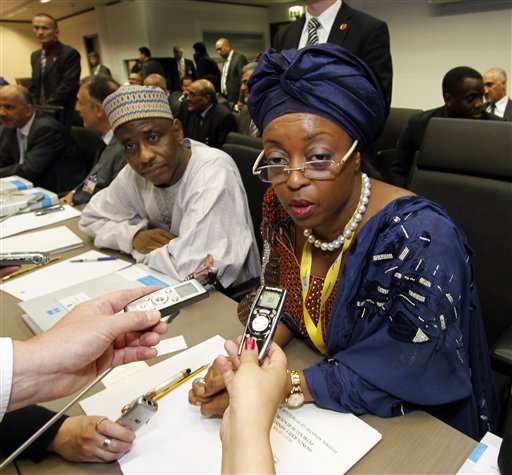Northern senators have given listed their conditions for supporting the passage of the Petroleum Industry Bill.
Even though the bill has passed second reading in the Senate, the senators have not given up their opposition to the bill.
The conditions which they say the National Assembly must address before the bill is passed into law, are the removal of the discretionary power given to the Minister of Petroleum Resources to determine royalty and the 10 per cent Host Community Fund, which will give oil producing states more revenue than the 19 states in the North.
They are seeking, also, the reduction of the powers of the Minister of Petroleum Resources as contained in the bill.
While the senators have become positive about the bill, their counterparts in the House of Representatives are less optimistic.
The two demands were the highlights of a session of the Northern Senators Forum held in Abuja last week.
The meeting was stormy on why the Chairman of the Forum, Senator Umaru Dahiru, travelled abroad for a conference when the debate on the bill was before the Senate; however, wise counsel later prevailed
A source, speaking in confidence, said: “We spent the session to review the debate on the PIB on the floor of the Senate and how an attempt was made to scandalise the North by falsely claiming that its leaders own 83 per cent of the nation’s oil blocks.
“Members of the Forum expressed regrets that their chairman travelled out of the country, which led to a gap in reacting to Senator Enang’s wrong impressions created in Nigerians about the North.
“To keep the Forum united, we decided to retain the leadership of the Forum but with a caveat that it should be up and doing.”
Another high-ranking senator said Northern Senators agreed on some merits in the PIB but they listed two conditions which must be fulfilled before it is passed into law.
The source added: “The conditions are the removal of the discretionary power given to Minister of Petroleum Resources to determine royalty and the review of the 10 per cent Host Community Fund, which will give Oil Producing States more revenue than the 19 states in the North.
“We all agreed that the PIB will make a sitting Minister of Petroleum more powerful than the President.
“Once these two issues are addressed, the PIB will receive the support of Northern Senators.”
But while the Senators have soft-pedalled on their opposition to the bill, members of the House of Representatives from the North are opposed to it.
A member of the House, who spoke with our correspondent, said: “We are standing by our position in the document prepared by the Northern Governors Forum and members of the National Assembly from the North.”
He listed the grievances are as follows:
•Discretionary power given to Minister of Petroleum Resources to determine royalty;
•The host community fund will give oil producing states more revenue than the 19 states in the North
•Divestment of equity in National Oil Company and the National Gas Company will favour the South
•Lack of consultations with states on PIB; and
•No plan for gas supply to the North in the bill
He quoted a part of the document as saying: “On top of the 13.5 per cent statutory derivation from the Federation Account, the mandatory Federal budgetary allocation to the Ministry of Niger Delta, the Niger Delta Development Commission (NDDC) levy of 3 per cent of oil operations and the massive amount of Federal funds being spent on the Niger Delta Amnesty programme, the new PIB is adding 10 per cent of the profit of all Oil and Gas companies to the Niger Delta States and Communities.
“Currently, without this new addition, four states (Akwa Ibom, Bayelsa, Delta and Rivers) earn more than the 19 Northern States combined. One wonders what kind of federation we would end up with if this situation is escalated by the new PIB. In any case, what really is the constitutional standing of this particular provision in the Bill?
“These and many more other issues in the Petroleum Industry Bill need very close scrutiny by the Northern Governors Forum. Without this exercise, it is very possible for the states in the region to be legally short-changed through the process of legislation despite having the majority membership in the two chambers of the National Assembly.”

